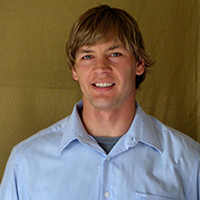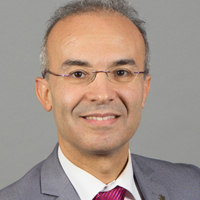In keeping with the objectives of the Analytical Solutions Forum Session i.e., to bring to light new challenges, to share innovative approaches to address such challenges, and to introduce new technological concepts on the horizon, the Emerging Topics and Technologies Session at the 2022 AOAC Midyear Meeting will continue to explore food safety concerns of high importance and noteworthy technological advances. These may either be conceptual, in the developmental phase, newly adapted for food and environmental applications, or through the integration of multiple existing technologies to address complex food processing or food testing challenges.
This session will offer three new areas of exploration. Attendees will hear enlightening presentations on advancements in:
Surveillance, traceability, and risk are key parts of all food safety programs. Each are dependent on the confidence of the data acquired and the applicability of those analytical methods used. Many new methods to meet the objectives of assessing food safety and public health threats are integrating innovative approaches that combine new or existing technologies to limit outbreaks of foodborne illness and incidences of economically motivated adulteration. This one-hour session will introduce two novel applications under development that hold significant promise for these purposes. They include the adaptability of effect-base bioassays and transcriptomics for assessing food and public health risks associated with environmental and complex food matrices; and the use of environmental DNA (eDNA) sequencing and GPS for pre-block chain traceability.
Dr. Michael DeVito, Director, Chemical Characterization and Exposure Division, U.S. EPA
Dr. Karma Fussell, Senior Specialist Chemical Food Safety, Nestle

Dr. Demian Willette is an assistant professor in the Biology Department at Loyola Marymount University (LMU). His teaching and research are in Applied Ecology – the field of taking science from the bench-top to the real world to solve ecological challenges. Dr. Willette has his Bachelor’s and Masters’ in Biology from Iowa State University and Cal State LA, respectively, and his Ph.D. in Environmental Health Science from UCLA. He also did two post-docs in genetics & fisheries in Southeast Asia. He has taught and conducted research in 13 countries and published over 40 peer-reviewed scientific papers. He is a Fulbright scholar and an APEC ASPIRE Prize nominee, and his research has been featured by the LA Times, BBC, CNN, Fox News, and NPR, among others.
Method developers are starting to incorporate artificial intelligence (AI) into analytical methods. AOAC and its members need to be informed about new methods that incorporate AI. This session will give attendees a high-level, one-hour review of the application of AI to food safety.
Nicola Colombo, Chief Executive Officer, C-LABS SA, Global Head of SGS DIGICOMPLY
Availability of, access to, and utilization of safe food, and stability of these factors over time are at the core of food security. As defined by the Food Agricultural Organization (FAO), food security is when “all people, at all times, have physical and economic access to sufficient safe and nutritious food that meets their dietary needs and food preference for an active and healthy life.” With a world population of 7.9 billion people growing at a rate of 1% per year and more than two billion people experiencing food insecurity, there is still much to do to meet this sustainable goal. The global marketplace is responding with innovation by reimagining traditional food sources as well as emerging and novel food products such as fermented foods, insect- and plant-derived protein sources, and laboratory developed foods to support variety and volume capacity needs. However, foundational to food security is food safety. Without assuring safe food, food security is unlikely. Hence, food safety systems are essential to support innovation.
Food safety systems inclusive of regulations, standards, and policies can set the framework for ensuring global trading capability. However, the food safety must be science-based and start at the beginning of the supply chain through consumption and elimination. Traceability, risk assessment, quality systems, fit for purpose methodology, laboratory proficiency, data management, education, and now, horizon scanning for potential threats are all part of a holistic approach to food safety infrastructure. Established food safety systems access the latest in science and technological innovation, training, and education, and have mechanisms in place to update or develop standards and policies that lag production of emerging or novel food product. Through public and private partnerships, multiple global efforts are underway to help address issues of food security, which include strengthening emerging food safety systems through capacity and infrastructure building. This session will provide an overview of global strategies and challenges of food security and food safety followed by an overview of efforts underway for capacity building in Africa.

Dr. Samuel Godefroy is a Full Professor of Food Risk Analysis and Regulatory Policies at the Department of Food Science, Faculty of Agriculture and Food Sciences, Université Laval, Québec, Canada. Before Joining Université Laval in the fall of 2015, Samuel completed a secondment with the World Bank’s Global Food Safety Partnership where he led the Strategic Development of this initiative. Under his leadership, this public-private partnership developed and adopted its 2015-2020 strategic framework, to guide its actions in food safety capacity building globally.
Samuel has more than 15 years of experience in food regulatory policy setting. He served in senior food regulatory positions at the executive level with Health Canada for over 10 years, including the position of Director General of Health Canada’s Food Directorate, the Federal food standard setting organization in Canada from 2009 to 2015.